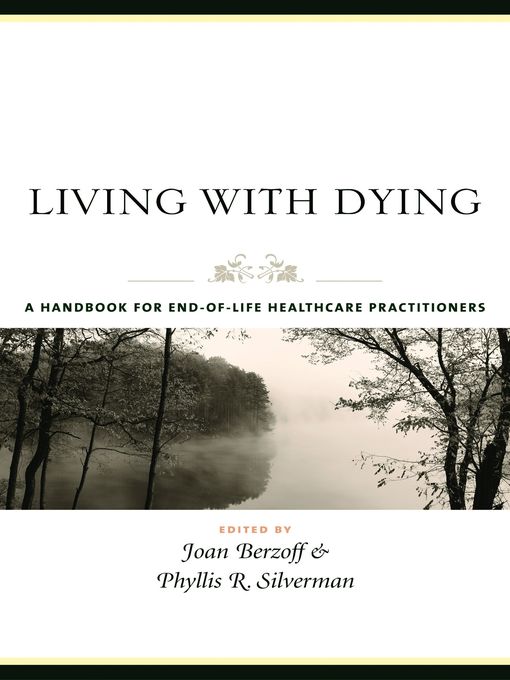The first resource on end-of-life care for healthcare practitioners who work with the terminally ill and their families, Living with Dying begins with the narratives of five healthcare professionals, who, when faced with overwhelming personal losses altered their clinical practices and philosophies. The book provides ways to ensure a respectful death for individuals, families, groups, and communities and is organized around theoretical issues in loss, grief, and bereavement and around clinical practice with individuals, families, and groups.
Living with Dying addresses practice with people who have specific illnesses such as AIDS, bone marrow disease, and cancer and pays special attention to patients who have been stigmatized by culture, ability, sexual orientation, age, race, or homelessness. The book includes content on trauma and developmental issues for children, adults, and the aging who are dying, and it addresses legal, ethical, spiritual, cultural, and social class issues as core factors in the assessment of and work with the dying. It explores interdisciplinary teamwork, supervision, and the organizational and financing contexts in which dying occurs.
Current research in end-of-life care, ways to provide leadership in the field, and a call for compassion, insight, and respect for the dying makes this an indispensable resource for social workers, healthcare educators, administrators, consultants, advocates, and practitioners who work with the dying and their families.
- You Turn My Pages
- New Ebooks
- New YA Additions
- Michigan Notable Books
- New Kid Additions
- Christian Romance
- Nordic Noir/International Crime
- LGBTQ+
- Native American Heritage
- Hooked on Classic Literature
- Addiction and Recovery
- Self-Improvement
- U.P. Notable Books
- See all
- New Audiobooks
- Suspenseful Thrillers (Audiobooks)
- Non-Fiction
- Available Now
- Audiobooks for Your Family Road Trip
- Narrated by the Author
- Historical Thrillers
- See all
- Travel & Outdoor
- Fashion
- Crafts & Hobbies
- Science
- Health & Fitness
- Celebrity
- Home & Garden
- Hunting & Fishing
- Food & Cooking
- Sports
- Culture & Literature
- Tech & Gaming
- Business & Finance
- See all

